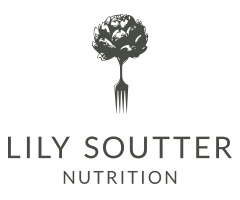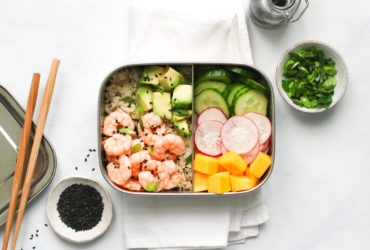How Many Of These Food Myths Are You Currently Falling For?
Conflicting nutrition advice is confusing and frustrating for many. Given a large amount of misinformation within the media it can be difficult to know right from wrong when it comes to healthy eating. This is why I’ve debunked some common diet myths to support you with making healthier choices…
1. Don’t eat egg yolks
Egg yolks are high in cholesterol, which is why there is a common misconception that they raise blood cholesterol. However, research has shown that a modest intake of eggs (up to 1 per day) doesn’t raise cholesterol and most of us can enjoy egg yolks as part of a healthy balanced diet.
It is more likely to be the saturated fat and trans-fats within our diet which impacts blood cholesterol levels. Therefore it is important to be mindful of the way we cook eggs as well as what we pair them with. If we fry our eggs in butter and combine them with fatty cuts of bacon, then it will be the saturated fat within the meal which will have the biggest impact on cholesterol levels.
What’s more, the yolk is a highly nutritious part of the egg and full of fat-soluble vitamins including vitamin D. The bright yellow-orange colour also comes from health-promoting antioxidants.

2. Gluten-free is healthier
Whilst it’s important to avoid gluten if you have a medical condition such as coeliac disease, for the rest of us gluten-free products aren’t necessarily healthier. Gluten is a protein, which is found in wheat, rye and barley and tends to play a key role with the texture of food product. Often when gluten is removed from a food, manufacturers add extra salt, sugar and starches to make them more palatable.
What’s more, avoiding gluten-containing food groups unnecessarily can restrict the diet, which may lead to nutritional deficiencies for some.
3. Flat tummy teas help us to lose weight
Teas for weight loss and ‘flat tummies’ have been highly endorsed by celebrities and have become a hugely popular rage. This range of herbal teas claims to boost metabolism, cleanse your digestive tract and reduce bloating. What’s more many of these companies rely on influencers to preach the message that their tea will leave you with a flat tummy just like theirs.
Not only is there no conclusive evidence to back up these health claims, but a common ingredient called senna is also used within the teas and acts as a laxative. In reality, senna increases bowel movements which may leave people feeling slimmer and having a flatter stomach in the short term, but there is absolutely no impact on fat loss.
Senna can irritate the stomach lining and can cause cramps and diarrhoea. For those suffering from IBS, senna can only exasperate symptoms. If these teas are consumed in large quantities they may even lead to disruption with the body’s electrolyte balance which may cause heart problems in the long run.
By following a healthy balanced diet, and increasing exercise can put us into a calorie deficit which is key for weight loss.
4. Fruit has too much sugar so we should limit consumption
There is a lot of confusion as to whether we need to hold back on fruit consumption due to the sugar content. You may have heard rumours such as ‘bananas make you fat’ or that ‘fruit is high in sugar therefore unhealthy’. However this is simply a myth, fruit sugar is locked into a fibrous matrix, which can help to slow the release of sugar into the bloodstream. What’s more, fibre can help to keep us fuller for longer. Fruit also provides key vitamins, minerals and antioxidants which support health.
If you’re unsure of how much fruit to consume per day, you could aim for 3 portions of vegetables and 2 portions of fruit.
5. Carbohydrates lead to weight gain
There is a common misconception that carbohydrates make us fat, but in reality overconsumption of any food group will lead to weight gain. What’s more, if we combine our carbohydrate source with too much fat, for example, fried chips or pasta with a heavy cream sauce, the overall calorie content of the dish increases and this is what can lead to weight gain. Carbohydrate containing foods are our only source of fibre, and the European Food Safety Authority suggest that including fibre rich foods as part of a healthy balanced diet can improve weight maintenance.
Fibre has satiating properties, therefore, can help to keep us fuller for longer which may play a role in reducing energy consumption and maintaining healthy body weight.
When opting for starchy carbohydrates, choose whole grains which have their fibrous outer bran layer left intact. Most of the goodness is found in this bran layer which means that whole grains can contain 75% more nutrients than their refined counterparts.
Lily is a London Nutritionist who graduated from Newcastle University with a BSc (Hons) degree in Food and Human Nutrition (AfN accredited) where she was awarded the Sage Faculty for Excellence Scholarship on an annual basis. She then went on to complete a 2-year post graduate Diploma in Nutritional Therapy and is currently working towards her MSc in Nutritional Medicine (AfN accredited) at the University of Surrey. Lily’s extensive knowledge of the science of food and health, enables her to regularly write for The Times, The Telegraph, The Daily Mail, The Independent, Women’s Health and Cosmopolitan.
Her frequent TV appearances include ITV’s This Morning with Holly Willoughby and Phillip Schofield, and ITV’s primetime series Save Money: Lose Weight with Dr Ranj Singh. Lily’s passion is to simplify the science around nutrition, to provide health hacks and smarter eating strategies to empower people to enjoy a healthy and successful lifestyle. Her specialities lie in workplace wellness, implementing nutrition focused wellbeing programmes within corporate organisations across the UK.
Lily also sees individual clients from her clinic in Chelsea and a private medical practice based in Notting Hill.



